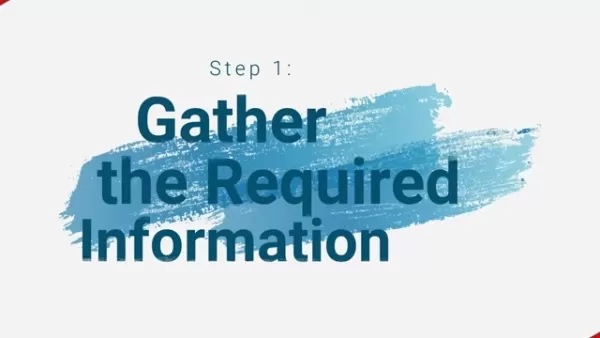AI Agent Deployments to Surge 327% in Next Two Years: Here's Your Action Plan

CHROs Embrace AI Agents to Boost Productivity
Chief Human Resources Officers (CHROs) are gearing up for a significant shift towards digital labor over the next two years, with a keen focus on integrating AI agents to enhance productivity. This insight comes from the latest global research conducted by Salesforce, which involved a survey of 200 HR executives worldwide to understand their views on the role of AI in the workplace.
The findings reveal a strong belief among CHROs in the transformative power of AI agents. A whopping 77% of the respondents see these agents becoming a core component of the workforce, indicating that digital labor is not just an add-on but a vital element of future business strategies that needs careful consideration.
The research highlights a rapid adoption of AI agents, with HR leaders expecting a 327% increase in their use within two years. This surge is anticipated to boost overall productivity by 30%, making a compelling case for businesses to integrate AI into their operations.
This integration is expected to bring about substantial changes in workforce skills and the structural design of organizations. CHROs predict the need to redeploy about 24% of their global workforce to adapt to new roles and responsibilities arising from digital labor. This underscores the proactive steps HR leaders must take to navigate this evolving landscape effectively.
These insights collectively point to the profound impact AI is set to have on the future of work, emphasizing the pivotal role of HR leaders in steering their organizations through this transition into a new era of digital labor.
The Future of Work is Hybrid
The research suggests that the future of work will see a harmonious blend of human and AI agents, working together to meet demands at an unprecedented pace:
- By 2030, 80% of CHROs believe that most companies will have a workforce where humans and AI agents collaborate closely. This trend underscores the evolving role of HR, possibly leading to a rebranding to "Talent Resources" to reflect the integration of human and machine labor.
- Between 2025 and 2027, CHROs anticipate a 327% increase in AI agent adoption, from 15% to 64%. Yet, 36% of respondents currently have no plans for adopting AI agents. This discrepancy suggests that the companies most likely to thrive in the future will be those that embrace digital labor, while others may struggle to compete in an AI-driven economy.
- CHROs expect AI agents to boost employee productivity by an average of 30% and reduce labor costs by 19%. While the productivity gains are immediate, the full potential of AI agent deployment will require further analysis.
Reskilling and Redeploying Talent
CHROs are setting strategic priorities to prepare for a future shaped by AI agents, focusing on new capabilities, organizational structures, and new opportunities:
- Over 80% of HR leaders plan to reskill their workforce to stay competitive in an AI-driven market. The way we measure success will shift, with less emphasis on effort and experience and more on data and AI literacy. Despite the rise of AI, soft skills like relationship building and collaboration will become even more crucial as humans work alongside AI agents.
- A significant 77% of CHROs believe that AI agents will reshape organizational structures, reflecting the profound impact on how businesses operate.
- CHROs see AI and digital labor creating new opportunities for human talent, with 89% believing it will enable the transition of employees into more impactful roles. While 61% of the workforce is expected to continue in their current roles with the help of digital labor, about 23% may be redeployed to different roles or teams by 2027. This approach is seen as more cost-effective than hiring externally for new positions, with 88% of CHROs endorsing it.
- Additionally, 81% of CHROs are either already engaged in or planning to reskill their employees to prepare them for enhanced roles. This shift represents a cognitive upgrade, leveraging AI as trusted assistants to enhance human work.
Taking a Team Approach to Agents
The research indicates that autonomous businesses will require teams with a diverse set of skills:
- Only 15% of businesses have embraced agentic AI, suggesting a need for CHROs to collaborate with IT and R&D to accelerate digital labor adoption. As AI agents become more common, roles in IT, R&D, and sales are expected to grow, with a focus on technical roles requiring high data and AI literacy.
- Soft skills, such as building relationships, earning trust, and fostering a sense of belonging, are seen as crucial, yet challenging to teach. A significant 75% of CHROs believe that AI agents will increase the demand for these skills within their organizations.
- CHROs plan to reassign employees to roles that emphasize relationship building, where collaboration and adaptability are highly valued. Teams like customer service, operations, and finance may see a decrease in size and some redeployment as AI agents bring efficiency and augmentation.
What Happens Next
The integration of digital labor, particularly AI agents, into business operations is still in its early stages, with widespread adoption less than two years old. This newness has sparked excitement and urgency among HR leaders, though many are still in the planning phase. Only 15% of organizations have fully implemented agentic AI.
A surprising three out of four employees remain unaware of how AI agents might affect their daily tasks and roles, highlighting the need for managers to effectively communicate the transformation narrative. The focus should be on a cognitive upgrade for human employees, empowering them to work alongside AI rather than viewing it as a replacement.
We are witnessing the last generation of business leaders to manage a purely human workforce. The future of work is increasingly hybrid and autonomous, with human expertise and AI capabilities working together. This collaboration will revolutionize almost every aspect of business, yet the human need for belonging, career growth, and respect will remain constant.
This moment offers a unique opportunity for CHROs and HR leaders to shape the future of work in a way that fosters a positive and engaging environment. It's not just about securing a seat at the boardroom table for HR; if approached thoughtfully, HR will lead the crucial discussions, with other business leaders eager to join this HR-led initiative.
Related article
 Master Emerald Kaizo Nuzlocke: Ultimate Survival & Strategy Guide
Emerald Kaizo stands as one of the most formidable Pokémon ROM hacks ever conceived. While attempting a Nuzlocke run exponentially increases the challenge, victory remains achievable through meticulous planning and strategic execution. This definitiv
Master Emerald Kaizo Nuzlocke: Ultimate Survival & Strategy Guide
Emerald Kaizo stands as one of the most formidable Pokémon ROM hacks ever conceived. While attempting a Nuzlocke run exponentially increases the challenge, victory remains achievable through meticulous planning and strategic execution. This definitiv
 AI-Powered Cover Letters: Expert Guide for Journal Submissions
In today's competitive academic publishing environment, crafting an effective cover letter can make the crucial difference in your manuscript's acceptance. Discover how AI-powered tools like ChatGPT can streamline this essential task, helping you cre
AI-Powered Cover Letters: Expert Guide for Journal Submissions
In today's competitive academic publishing environment, crafting an effective cover letter can make the crucial difference in your manuscript's acceptance. Discover how AI-powered tools like ChatGPT can streamline this essential task, helping you cre
 US to Sanction Foreign Officials Over Social Media Regulations
US Takes Stand Against Global Digital Content Regulations
The State Department issued a sharp diplomatic rebuke this week targeting European digital governance policies, signaling escalating tensions over control of online platforms. Secretary Marco
Comments (2)
0/200
US to Sanction Foreign Officials Over Social Media Regulations
US Takes Stand Against Global Digital Content Regulations
The State Department issued a sharp diplomatic rebuke this week targeting European digital governance policies, signaling escalating tensions over control of online platforms. Secretary Marco
Comments (2)
0/200
![JasonKing]() JasonKing
JasonKing
 August 13, 2025 at 11:00:59 AM EDT
August 13, 2025 at 11:00:59 AM EDT
Wow, 327% surge in AI agents sounds massive! Curious how CHROs will balance productivity gains with employee concerns about job security. 🤔


 0
0
![GraceWright]() GraceWright
GraceWright
 July 27, 2025 at 9:18:39 PM EDT
July 27, 2025 at 9:18:39 PM EDT
This AI agent surge sounds like a game-changer! 327% growth in two years is wild—imagine all the tasks they’ll handle. But, are CHROs ready for the ethical mess this might stir up? 🤔


 0
0

CHROs Embrace AI Agents to Boost Productivity
Chief Human Resources Officers (CHROs) are gearing up for a significant shift towards digital labor over the next two years, with a keen focus on integrating AI agents to enhance productivity. This insight comes from the latest global research conducted by Salesforce, which involved a survey of 200 HR executives worldwide to understand their views on the role of AI in the workplace.
The findings reveal a strong belief among CHROs in the transformative power of AI agents. A whopping 77% of the respondents see these agents becoming a core component of the workforce, indicating that digital labor is not just an add-on but a vital element of future business strategies that needs careful consideration.
The research highlights a rapid adoption of AI agents, with HR leaders expecting a 327% increase in their use within two years. This surge is anticipated to boost overall productivity by 30%, making a compelling case for businesses to integrate AI into their operations.
This integration is expected to bring about substantial changes in workforce skills and the structural design of organizations. CHROs predict the need to redeploy about 24% of their global workforce to adapt to new roles and responsibilities arising from digital labor. This underscores the proactive steps HR leaders must take to navigate this evolving landscape effectively.
These insights collectively point to the profound impact AI is set to have on the future of work, emphasizing the pivotal role of HR leaders in steering their organizations through this transition into a new era of digital labor.
The Future of Work is Hybrid
The research suggests that the future of work will see a harmonious blend of human and AI agents, working together to meet demands at an unprecedented pace:
- By 2030, 80% of CHROs believe that most companies will have a workforce where humans and AI agents collaborate closely. This trend underscores the evolving role of HR, possibly leading to a rebranding to "Talent Resources" to reflect the integration of human and machine labor.
- Between 2025 and 2027, CHROs anticipate a 327% increase in AI agent adoption, from 15% to 64%. Yet, 36% of respondents currently have no plans for adopting AI agents. This discrepancy suggests that the companies most likely to thrive in the future will be those that embrace digital labor, while others may struggle to compete in an AI-driven economy.
- CHROs expect AI agents to boost employee productivity by an average of 30% and reduce labor costs by 19%. While the productivity gains are immediate, the full potential of AI agent deployment will require further analysis.
Reskilling and Redeploying Talent
CHROs are setting strategic priorities to prepare for a future shaped by AI agents, focusing on new capabilities, organizational structures, and new opportunities:
- Over 80% of HR leaders plan to reskill their workforce to stay competitive in an AI-driven market. The way we measure success will shift, with less emphasis on effort and experience and more on data and AI literacy. Despite the rise of AI, soft skills like relationship building and collaboration will become even more crucial as humans work alongside AI agents.
- A significant 77% of CHROs believe that AI agents will reshape organizational structures, reflecting the profound impact on how businesses operate.
- CHROs see AI and digital labor creating new opportunities for human talent, with 89% believing it will enable the transition of employees into more impactful roles. While 61% of the workforce is expected to continue in their current roles with the help of digital labor, about 23% may be redeployed to different roles or teams by 2027. This approach is seen as more cost-effective than hiring externally for new positions, with 88% of CHROs endorsing it.
- Additionally, 81% of CHROs are either already engaged in or planning to reskill their employees to prepare them for enhanced roles. This shift represents a cognitive upgrade, leveraging AI as trusted assistants to enhance human work.
Taking a Team Approach to Agents
The research indicates that autonomous businesses will require teams with a diverse set of skills:
- Only 15% of businesses have embraced agentic AI, suggesting a need for CHROs to collaborate with IT and R&D to accelerate digital labor adoption. As AI agents become more common, roles in IT, R&D, and sales are expected to grow, with a focus on technical roles requiring high data and AI literacy.
- Soft skills, such as building relationships, earning trust, and fostering a sense of belonging, are seen as crucial, yet challenging to teach. A significant 75% of CHROs believe that AI agents will increase the demand for these skills within their organizations.
- CHROs plan to reassign employees to roles that emphasize relationship building, where collaboration and adaptability are highly valued. Teams like customer service, operations, and finance may see a decrease in size and some redeployment as AI agents bring efficiency and augmentation.
What Happens Next
The integration of digital labor, particularly AI agents, into business operations is still in its early stages, with widespread adoption less than two years old. This newness has sparked excitement and urgency among HR leaders, though many are still in the planning phase. Only 15% of organizations have fully implemented agentic AI.
A surprising three out of four employees remain unaware of how AI agents might affect their daily tasks and roles, highlighting the need for managers to effectively communicate the transformation narrative. The focus should be on a cognitive upgrade for human employees, empowering them to work alongside AI rather than viewing it as a replacement.
We are witnessing the last generation of business leaders to manage a purely human workforce. The future of work is increasingly hybrid and autonomous, with human expertise and AI capabilities working together. This collaboration will revolutionize almost every aspect of business, yet the human need for belonging, career growth, and respect will remain constant.
This moment offers a unique opportunity for CHROs and HR leaders to shape the future of work in a way that fosters a positive and engaging environment. It's not just about securing a seat at the boardroom table for HR; if approached thoughtfully, HR will lead the crucial discussions, with other business leaders eager to join this HR-led initiative.
 Master Emerald Kaizo Nuzlocke: Ultimate Survival & Strategy Guide
Emerald Kaizo stands as one of the most formidable Pokémon ROM hacks ever conceived. While attempting a Nuzlocke run exponentially increases the challenge, victory remains achievable through meticulous planning and strategic execution. This definitiv
Master Emerald Kaizo Nuzlocke: Ultimate Survival & Strategy Guide
Emerald Kaizo stands as one of the most formidable Pokémon ROM hacks ever conceived. While attempting a Nuzlocke run exponentially increases the challenge, victory remains achievable through meticulous planning and strategic execution. This definitiv
 AI-Powered Cover Letters: Expert Guide for Journal Submissions
In today's competitive academic publishing environment, crafting an effective cover letter can make the crucial difference in your manuscript's acceptance. Discover how AI-powered tools like ChatGPT can streamline this essential task, helping you cre
AI-Powered Cover Letters: Expert Guide for Journal Submissions
In today's competitive academic publishing environment, crafting an effective cover letter can make the crucial difference in your manuscript's acceptance. Discover how AI-powered tools like ChatGPT can streamline this essential task, helping you cre
 US to Sanction Foreign Officials Over Social Media Regulations
US Takes Stand Against Global Digital Content Regulations
The State Department issued a sharp diplomatic rebuke this week targeting European digital governance policies, signaling escalating tensions over control of online platforms. Secretary Marco
US to Sanction Foreign Officials Over Social Media Regulations
US Takes Stand Against Global Digital Content Regulations
The State Department issued a sharp diplomatic rebuke this week targeting European digital governance policies, signaling escalating tensions over control of online platforms. Secretary Marco
 August 13, 2025 at 11:00:59 AM EDT
August 13, 2025 at 11:00:59 AM EDT
Wow, 327% surge in AI agents sounds massive! Curious how CHROs will balance productivity gains with employee concerns about job security. 🤔


 0
0
 July 27, 2025 at 9:18:39 PM EDT
July 27, 2025 at 9:18:39 PM EDT
This AI agent surge sounds like a game-changer! 327% growth in two years is wild—imagine all the tasks they’ll handle. But, are CHROs ready for the ethical mess this might stir up? 🤔


 0
0





























